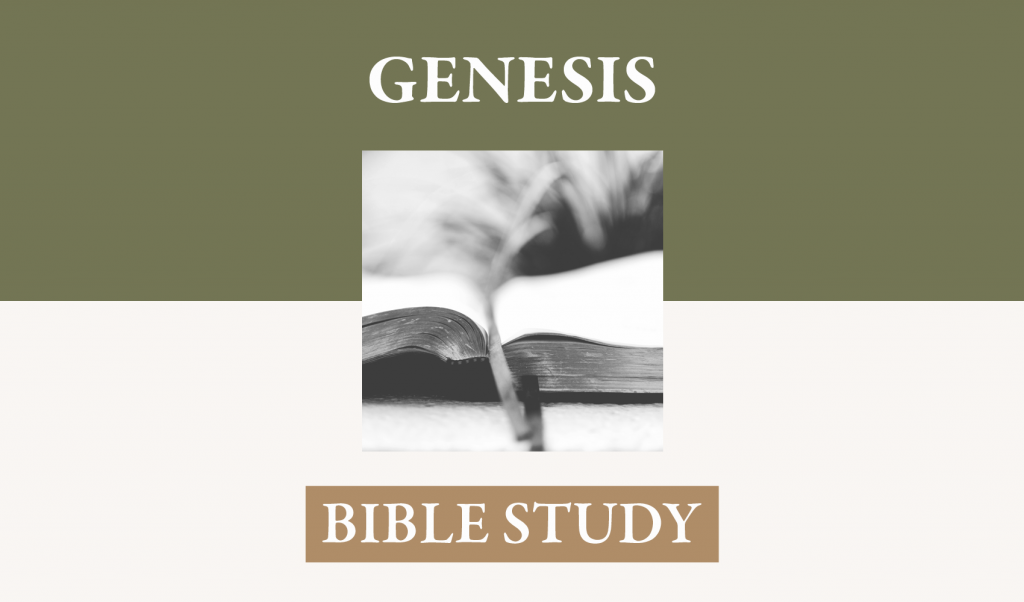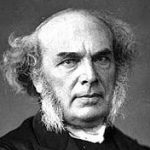Biblical Truth: God tests His people’s devotion to Him.
Tested Faith: Gen. 22:1-2.
[1] Now it came about after these things, that God tested Abraham, and said to him, “Abraham!” And he said, “Here I am.” [2] He said, “Take now your son, your only son, whom you love, Isaac, and go to the
There are many allusions in this chapter to the promises issued to Abram in previous events. The impact is the elevation of this single event so as to make all of the past promises hang on Moriah’s test. The call at
[1-2] Enough time has passed for Isaac to have grown from a toddler in 21:8 to an adolescent in chapter 22. Isaac is old enough to endure a climb bearing wood but is still considered a lad. Although Moses does not concern himself with the extent of Isaac’s knowledge and compliance, it is apparent that Isaac must have dutifully conceded to his aged father’s wishes. The identity of the sacrifice is described with heart-rending precision, your son, your only son, whom you love. Ishmael is also his son, but Isaac alone remains the apparent heir, the “beloved.” Whom you love is not to imply Abraham did not love Ishmael, but his love is explicitly stated to emphasize the precious possession Isaac is in the eyes of the old man. This makes the test as severe as is thinkable; no test could be any more probing of the patriarch’s loyalty, for even the taking of his own life would not pass the trial since the future promise lay with the boy. The place for the sacrifice is vaguely cited, the
Hard Obedience: Gen. 22:3-10.
[3] So Abraham rose early in the morning and saddled his donkey, and took two of his young men with him and Isaac his son; and he split wood for the burnt offering, and arose and went to the place of which God had told him. [4] On the third day Abraham raised his eyes and saw the place from a distance. [5] Abraham said to his young men, “Stay here with the donkey, and I and the lad will go over there; and we will worship and return to you.” [6] Abraham took the wood of the burnt offering and laid it on Isaac his son, and he took in his hand the fire and the knife. So the two of them walked on together. [7] Isaac spoke to Abraham his father and said, “My father!” And he said, “Here I am, my son.” And he said, “Behold, the fire and the wood, but where is the lamb for the burnt offering?” [8] Abraham said, “God will provide for Himself the lamb for the burnt offering, my son.” So the two of them walked on together. [9] Then they came to the place of which God had told him; and Abraham built the altar there and arranged the wood, and bound his son Isaac and laid him on the altar, on top of the wood. [10] Abraham stretched out his hand and took the knife to slay his son. [NASU]
[3] Early in the morning occurs in settings of urgency in the Abraham narrative [19:27; 20:8; 21:14]. This remark indicates the patriarch’s prompt obedience and full submission to God. Unlike his earlier rebuttals to God, substituting Eliezer [15:2] or Ishmael [17:18], Abraham is utterly mute. His only words are absolute compliance and a confidence in the Lord’s final provision. His testimony to the servants, we will worship and return to you [5], conveys his reliance on God to make good on His prior promise, through Isaac your descendants shall be named [21:12].
[4-5] Raised his eyes and saw recalls the earlier stories of
[6] Now Isaac becomes both the beast of burden, carrying the wood and the sacrificial lamb. The passage continues its emphasis on Abraham’s complete obedience. As the offerer of the sacrifice, Abraham took in his hand the fire and the knife. The two of them walked on together [6,8] presents another touching depiction of the offerer and his gift to the Lord. The passage shows that there was ample occasion across the three days and during the scaling of the mount for Abraham to ponder retreat, but he steadfastly moved forward.
[7-8] At this point in the story, the boy speaks his only recorded words, raising the obvious question of a lamb. My father and my son underscore the trust that such familial relations possess. In a profound twist of outcome, his father’s unreserved dependence on God’s promissory word, though it ostensibly means the loss of Isaac, assures the boy’s future blessing as pledged for Abraham’s generations [cf. 17]. Abraham’s answer is not evasion but his honest openness to God’s operations [8]. Provide is the key word of the account, pointing to God’s provision of the ram [13] and the naming of the sacred site [14]. In Levitical sacrifice the offerer himself provided the animal. Here, however, Abraham reverses the means, showing that God’s command made the matter His own responsibility. The church fathers viewed Abraham’s answer a theological foreshadow of Christ’s sacrifice. The Christian reader today sees the additional irony that God supplies His own Son for the sins of the world, whereas Abraham’s son escapes unharmed.
[9-10] Reference to the place brings the reader to the appointed site for worship. Which God had told him reiterates the calculated obedience of Abraham. That Abraham built an altar fits his practice, recalling entry into the land at the start of his faith pilgrimage [12:7-8]. This custom also foreshadows Moses, who erects an altar for burnt sacrifice [Exodus 17:5; 24:4]. The almost matter-of-fact description of Abraham’s preparation of the sacrifice is broken by the emotive identity of the sacrifice, his son. Mention of the wood arranged on the altar not only gives a graphic picture for the reader but also contributes to the portrayal of Isaac as a willing victim who must have recognized at this point that he was the intended offering. He bound translates a verb which occurs only here in the Old Testament. Isaac, the stronger and swifter of the two, submits without struggle to the old man’s binding to the altar. Verse 10 describes the patriarch’s final steps in reaching for the knife. The two verses detailing the event are told in slow motion so the reader can experience with the father the anguish of the prolonged moment. There is no hesitation or any intercession; the father fully concedes to the divine will.
Obedience Rewarded: Gen. 22:11-14,17-18.
[11] But the angel of the Lord called to him from heaven and said, “Abraham, Abraham!” And he said, “Here I am.” [12] He said, “Do not stretch out your hand against the lad, and do nothing to him; for now I know that you fear God, since you have not withheld your son, your only son, from Me.” [13] Then Abraham raised his eyes and looked, and behold, behind him a ram caught in the thicket by his horns; and Abraham went and took the ram and offered him up for a burnt offering in the place of his son. [14] Abraham called the name of that place The Lord Will Provide, as it is said to this day, “In the mount of the Lord it will be provided.” [17] Indeed I will greatly bless you, and I will greatly multiply your seed as the stars of the heavens and as the sand which is on the seashore; and your seed shall possess the gate of their enemies. [18] In your seed all the nations of the earth shall be blessed, because you have obeyed My voice.”
[11-12] The angel of the Lord speaks from heaven as in the deliverance of Hagar and Ishmael [21:17]. The repetitive Abraham, Abraham! marks this as the turning point of the story. Now that the test has accomplished its purpose, the story line reverses the threat to the boy. The fervency of the heavenly command is expressed by the emphatic Abraham twice and the interruptive do not stretch out your hand against the lad. The latter reverses the lethal action stretched out his hand [10]. The urgency of the interdiction is magnified by its inclusiveness: do nothing to him. The angel’s explanation now I know is an admission that the ordeal was a test, a discovery of Abraham’s depth of loyalty. The text reads the singular pronoun you, referring to Abraham alone, indicating that despite what commendation might be inferred from Isaac’s obedience, it is Abraham who is the object of the test. Fear God describes the man’s obedience and trust motivated by his love of God. The causal clause, since you have not withheld your son, presents the test’s evidence of the patriarch’s devotion. It is not a theoretical matter. James capitalizes on this aspect of the event when he observes Abraham’s faith was perfected by what he did [James 2:22].The term withheld occurs twice, extolling the virtue of Abraham’s obedience [12,16] that results in the repeated promise of many descendants [17]. By releasing his only son he gains a multitude of offspring.
[13-14] The death of the discovered ram instead of Isaac epitomizes the idea of substitutionary atonement, which characterized the Levitical system. Verses 13-14 mirror the earlier dialogue of father and son concerning the sacrificial victim [7-8]. The timely presence of the entangled ram answers the boy’s earlier perplexity, where is the lamb? [7]. Abraham interprets the appearance of the animal according to his response in verse 8, God will provide, in naming the place The Lord Will Provide. The point of the miracle is that God caused the sudden appearance of a sacrificial ram conveniently trapped at the perfect moment just as Abraham raised his eyes from off his son, Isaac.
[15-16] That there is a second call from heaven emphasizes the importance of the event. The promise appears in a rare form of oath, by Myself I have sworn, enhancing the pledge to follow. Although the Lord is said at many places in the Old Testament to undertake an oath [e.g., 1 Samuel 3:14; Psalm 89:3], this is the only place in Genesis that the Lord expresses the patriarchal oath under explicit obligation to His own character (by Myself). This oath was remembered as the basis for divine blessing of future generations [e.g., Gen. 26:3; Exodus 33:1; Num. 14:23; 32:11; Deut. 1:35; 7:8; 10:11; 34:4; Joshua 1:6; Judges 2:1; Jer. 11:5]. A second time the angel explains that the promise is confirmed by what Abraham accomplished, an amazing act of loyalty deserving of another heavenly mention.
[17-18] The development of the patriarchal promise, given in stages in the Abraham narrative from its inception in 12:1-3, reaches its final rendering in verses 17-18. Here the promises from earlier narratives are expanded. I will bless you [12:2] becomes I will greatly bless you. The stars of the heavens recalls Abram’s night vision [15:5] but here includes and I will greatly multiply your seed. Verse 18 ends the review of the promises by variations on the theme of blessing for all nations [12:3; 18:18]. It is also reminiscent of the meaning attached to the new names Abraham and Sarah in the covenant of circumcision [17:4-6,15-16], referring to their royal seed. The New Testament alludes to elements of 22:17-18 when acknowledging the patriarch’s spiritual role for the Christian believer [e.g., Heb. 11:12]. The writer to the Hebrews [6:13-14] reminds his readers that the promise of salvation is irrefutable, for the Lord confirmed it swearing an oath by Himself, since He could swear by no one greater [6:13]. Peter quotes 22:18 in Acts 3:25 in showing the Jewish leaders that Christ is the fulfillment of the Abrahamic promise of blessing intended for all families, beginning first with the Jews. The last words of the angel befittingly repeat the astonishing achievement of the patriarch, because you have obeyed My voice. Obedience is critical to the success of Abraham’s descendants in establishing
Conclusion: The grand climax of Abraham’s life of faith is reached in chapter 22. One very important lesson this chapter teaches is that Abraham demonstrated his faith by his works [James 2:21-24; Hebrews 11:17-19]. The life of faith is manifested in works. There can be no genuine separation of these two. Faith must come first, and that alone is the basis upon which we are declared righteous and accepted by God. But what evidence is there of faith in the life? Here is the place for works, as James insists. So, too, Abraham’s faith was to become evident because of a mighty work he would undertake: the sacrifice of his beloved son.
Questions for Discussion:
1. Why does God test His people? The next time God tests you, focus on these things happening in your spiritual life through the testing.
2. God’s test of Abraham consisted of three commands: go, take, offer. Put yourself in the place of Abraham. What fears, doubts, hopes, etc., would be going through your mind? What do you think sustained Abraham on the three day journey [see Heb. 11:17-19]?
3. What do we learn about the relationship between faith and works in this passage? What effect did this testing have upon Abraham’s faith? What does it mean to choose the Giver over the gift?
References:
Genesis 12-36, James Boice, Baker.
Genesis 11:27-50:26, Kenneth Mathews, NAC, Broadman.

















